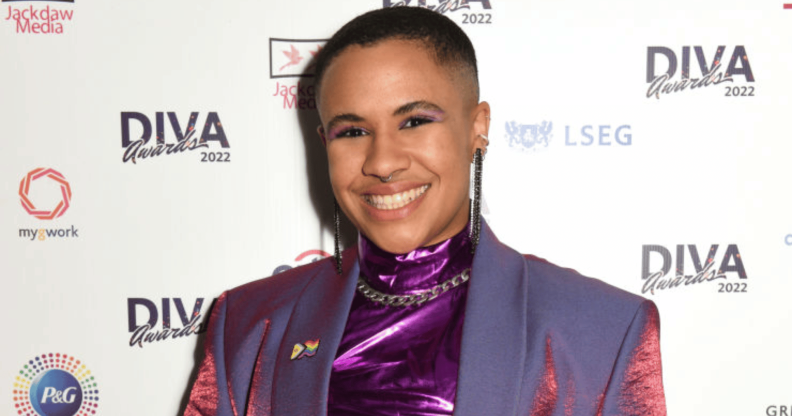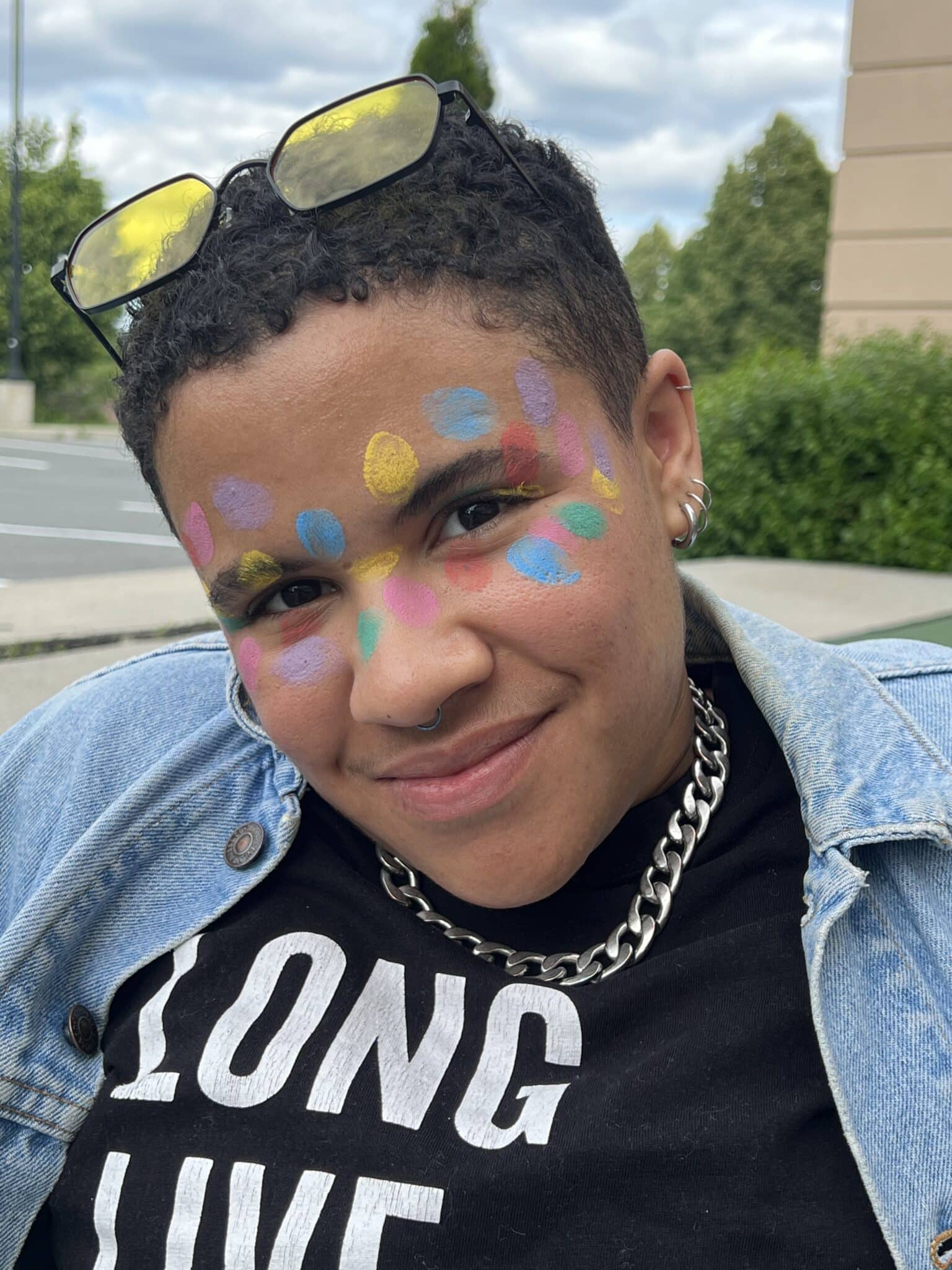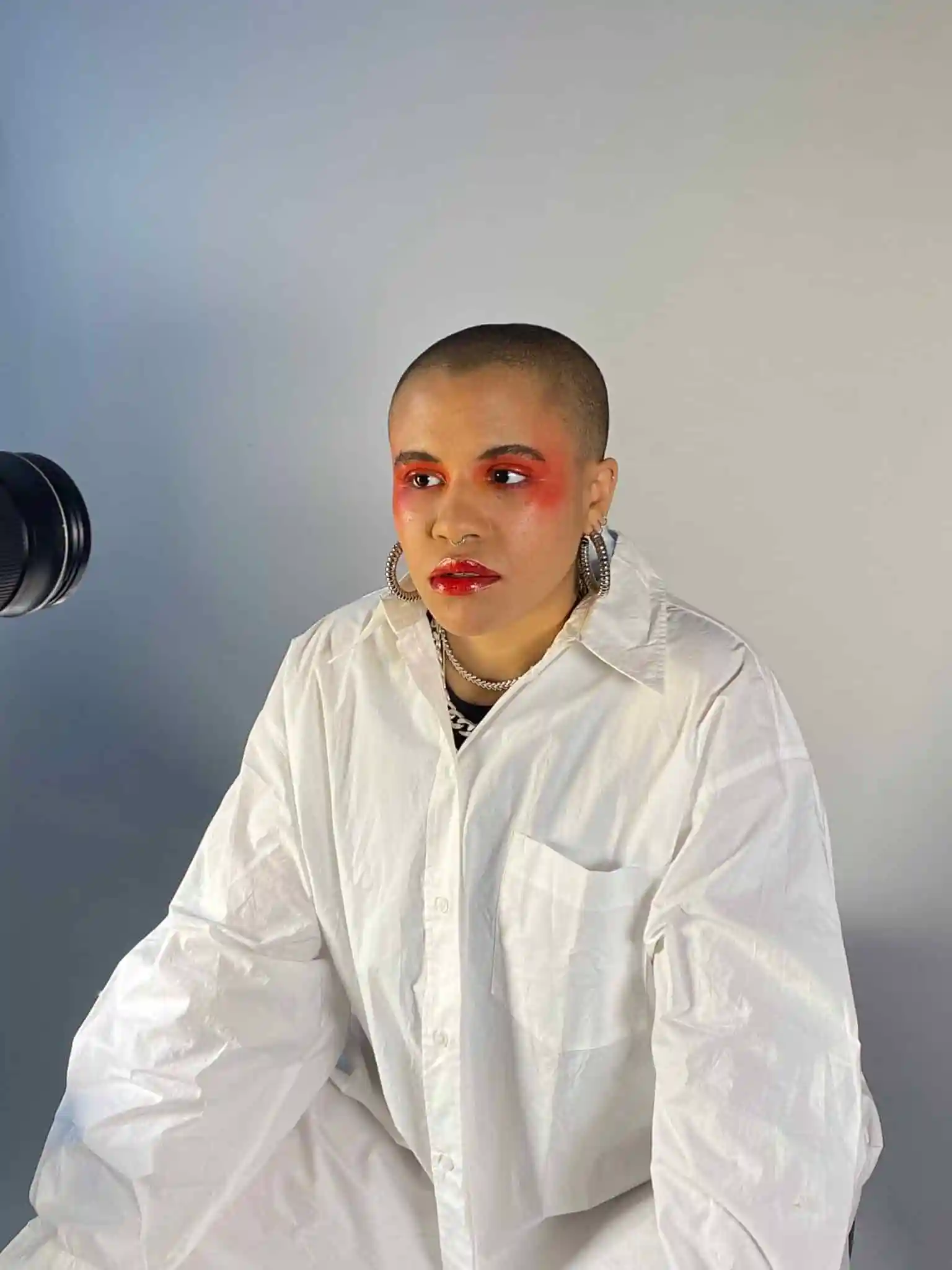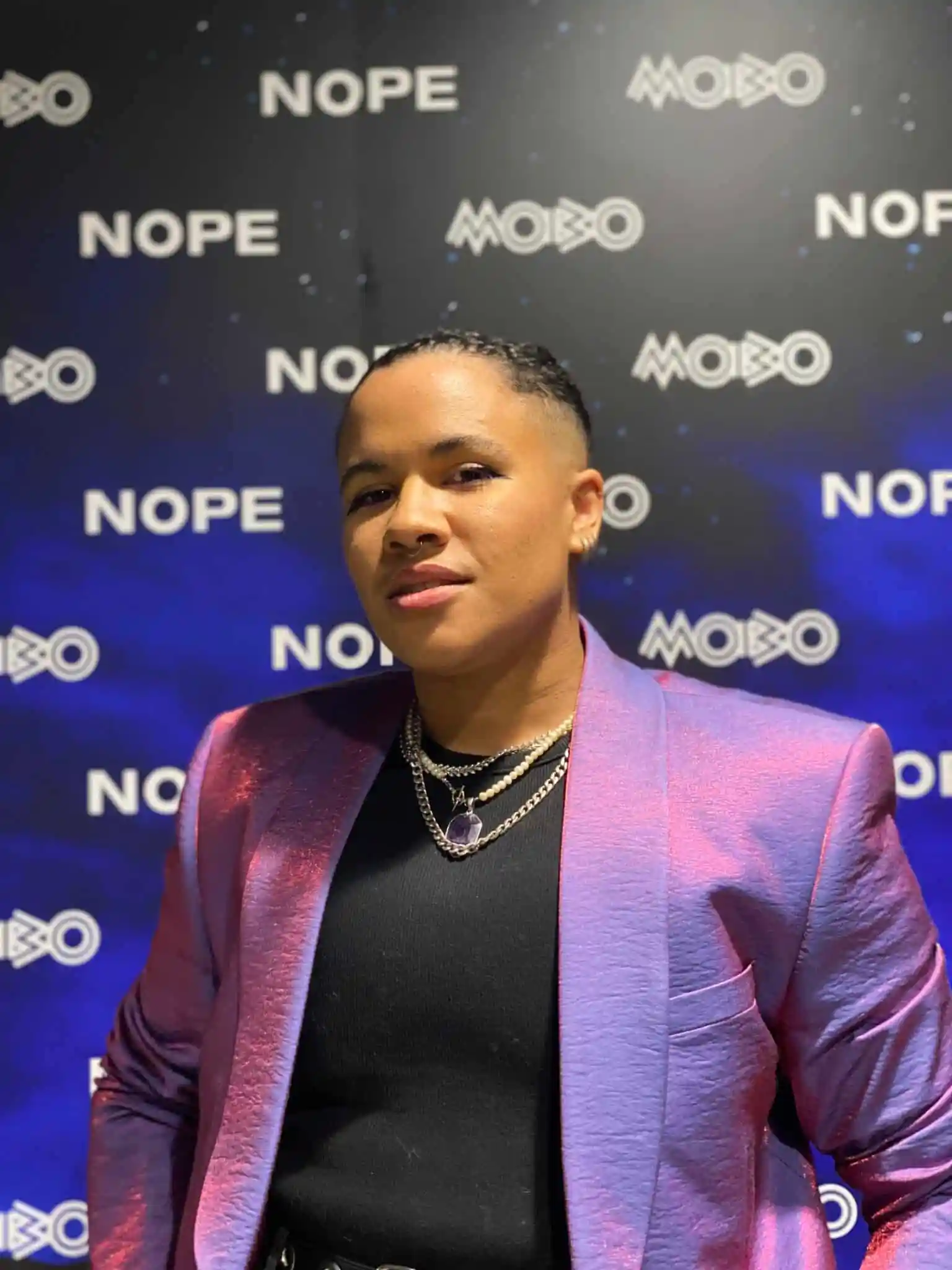Actor Ki Griffin on swapping Hollyoaks for telling joyful trans stories: ‘It’s important to show happy futures’

Ki Griffin at the DIVA Awards. (Nicky J Sims/Getty)
Former Hollyoaks actor Ki Griffin wants to illustrate trans joy and show that family is for everyone in his new short film Kindred.
Kindred is an immersive film that tells the true story of Syd, who became the first known non-binary person to successfully adopt a child in the UK. It’s a tender, heartfelt story that celebrates trans joy and the beauty that exists when two gender diverse people get the chance to form their own family.
“Honestly for me, I’ve never been a person that wanted to have kids, but I think the idea of parenthood being open to everyone is such a strong belief of mine,” Ki, who rose to fame playing non-binary character Ripley Lennox on Hollyoaks, tells PinkNews.
“As someone who’s non-binary there’s always that whole [question]: ‘Are traditional gender roles going to hold me back from being able to experience parenthood?’ This story is just a beautiful, uplifting moment of seeing that parenthood can look like a trans adult and a gender-questioning child coming together and forming a beautiful, safe household together.”

Ki Griffin is a ‘massive advocate’ for more trans joy
It’s important to Ki Griffin that a film like Kindred exists because it shows that trans people can live happy and fulfilled lives, whatever path they choose to follow.
Too often, trans joy is left out of the narrative completely by a media that’s obsessed with denigrating trans people. Even when they’re not actively trying to harm the community, trans and non-binary stories that make it into the mainstream tend to be dominated by violence and suffering.
“I think it’s really important that everyone in the community sees that there are the possibilities of happy futures for them,” he says.
“I think we’re often faced with media that shows us the hardships of trans and gender non-conforming identity, but as much as all of that media has its place, it needs to be balanced with the amount of joy that everyone outside of the alphabet mafia gets to experience in their media.
After all of those struggles there is a joyful experience to be had in the rest of your life and you can thrive.
“It’s really important that there is an understanding of the fact that life is not limited to you coming out – it doesn’t stop there – that people continue to live full, rich, joyful lives post-coming out and post-issues with trans identity.
“After all of those struggles there is a joyful experience to be had in the rest of your life and you can thrive, and I think that’s such an important message that the trans community doesn’t get a lot of the time.”

There was plenty of love and joy in the making of Kindred – the entire project was brought to fruition by a creative team comprised entirely of trans, non-binary and gender diverse people.
Everyone involved had “a very personal connection to the material”, Ki says, which arguably contributed to its success – the film was selected for the Venice International Film Festival, and won two awards at the Raindance Film Festival.
Certainly, it was a very different experience from working on Hollyoaks.
“As much as I love the work I did on Hollyoaks, I think as a person who makes things, I’ve always been more interested in making art and media that is niche and does serve its audience with grace and intellect and dignity,” Ki explains.
“This was definitely a step in the right direction career-wise for me. I’m more interested in making media and being a part of projects that really mean something to people.
“It is nice to be able to work on something where it’s on a less commercial platform.”
Still, the existence of characters like theirs in Hollyoaks shows that things are gradually – albeit slowly – improving for trans, non-binary and gender non-conforming people on television.
Do I think we still have a long way to go? Yeah, I do.
“I think we’re definitely moving in the right direction,” Ki says. “There is so much more opportunity for trans and non-binary people, there is so much more space for them to play meaningful characters that aren’t simply tokens, and that is wonderful.
“Do I think we still have a long way to go? Yeah, I do. I think that we still need to make sure that not just the people on screen are representative of the trans and non-binary community. We need to make sure the people behind the scenes, the crew – and when I’m talking crew I’m not just talking your director, your assistant director, I’m talking your boom operator – why aren’t they trans when we’re working on a huge trans story?
“It’s really important that behind the scenes of media-making reflects what’s on the screen as much as possible because making those authentic working environments does make better media. I can happily say it from having been on set with crew members who have also been trans, who have also been Black, and I’ve just been able to connect with them on those levels of identity.
“It’s made me perform better, I feel like it’s made me make better things, and I think that the more we recognise that intersectionality improves what we consume, the more it will hopefully happen.”

While there’s still a long way to go, Griffin is most interested right now in basking in the glow of Kindred. They hope people come away from the film with a new understanding of what family can mean.
“Family is such an individual thing to everyone and we truly choose our families,” he adds.
“We aren’t necessarily stuck by the systems of biology that our society tells us we are. We live in this ever-growing family as you meet people, as you connect with people, and people are added and taken away often.
“I think it’s really important that this film creates a way for people to see that parenthood can be for anyone and that this familial dynamic is just as valid as any biological one.”
How did this story make you feel?

